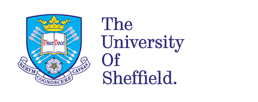
Fernando A Moala and Anthony O'Hagan
Department of Mathematics and Statistics, FCT-UNESP, Brazil and Department of Probability and Statistics, University of Sheffield, UK
Publication details: Journal of Statistical Planning and Inference 140, 1635-1655, 2010.
In the context of Bayesian statistical analysis, elicitation is the process of formulating a prior density f(.) about one or more uncertain quantities to represent a person's knowledge and beliefs. Several different methods of eliciting prior distributions for one unknown parameter have been proposed. However, there are relatively few methods for specifying a multivariate prior distribution and most are just applicable to specific classes of problems and/or based on restrictive conditions, such as independence of variables. Besides, many of these procedures require the elicitation of variances and correlations, and sometimes elicitation of hyperparameters which are difficult for experts to specify in practice. Garthwaite, Kadane and O'Hagan (2005) discuss the different methods proposed in the literature and the difficulties of eliciting multivariate prior distributions. We describe a flexible method of eliciting multivariate prior distributions applicable to a wide class of practical problems. Our approach does not assume a parametric form for the unknown prior density f(.), instead we use nonparametric Bayesian inference, modelling f(.) by a Gaussian process prior distribution. The expert is then asked to specify certain summaries of his/her distribution, such as the mean, mode, marginal quantiles and a small number of joint probabilities. The analyst receives that information, treating it as a data set D with which to update his/her prior beliefs to obtain the posterior distribution for f(.). Theoretical properties of joint and marginal priors are derived and numerical illustrations to demonstrate our approach are given.
Keywords: Elicitation, expert, analyst, Gaussian process, prior distribution